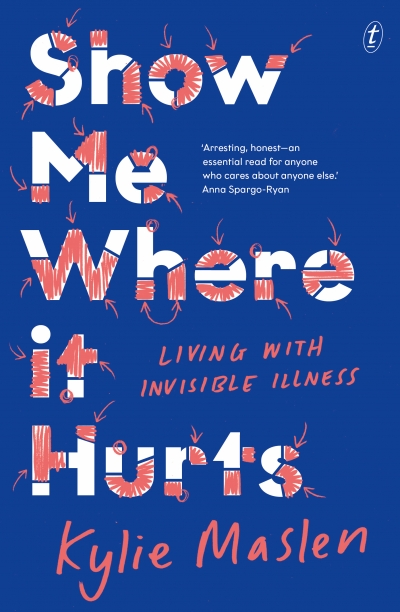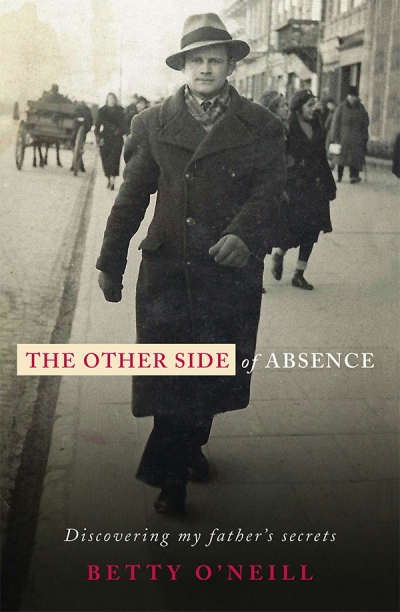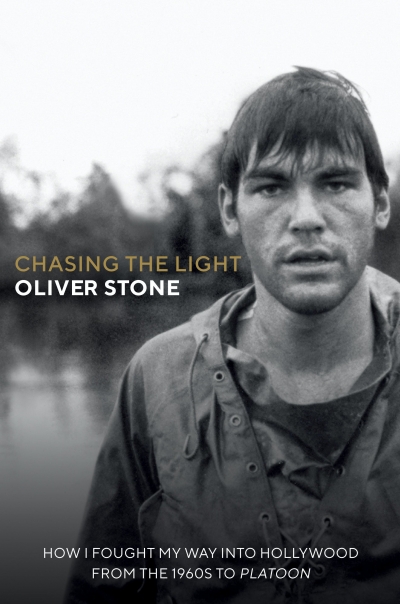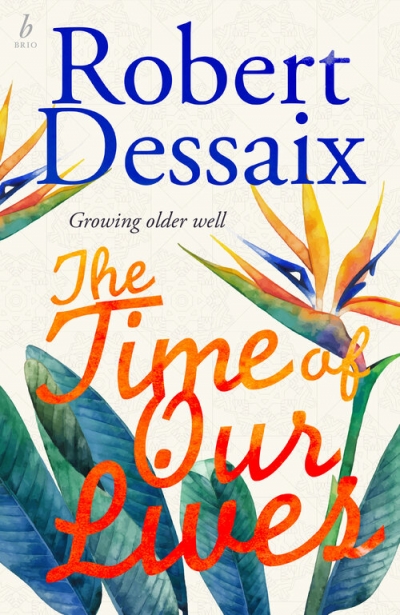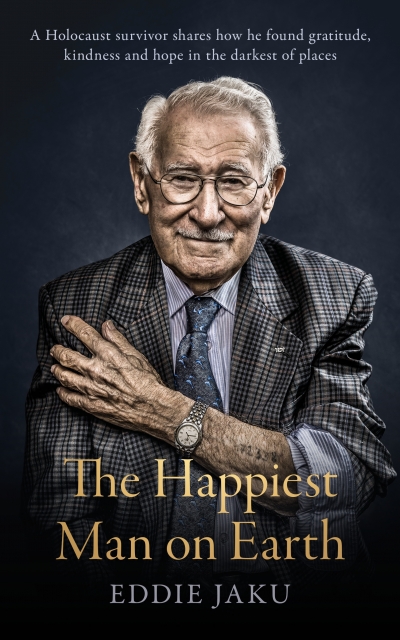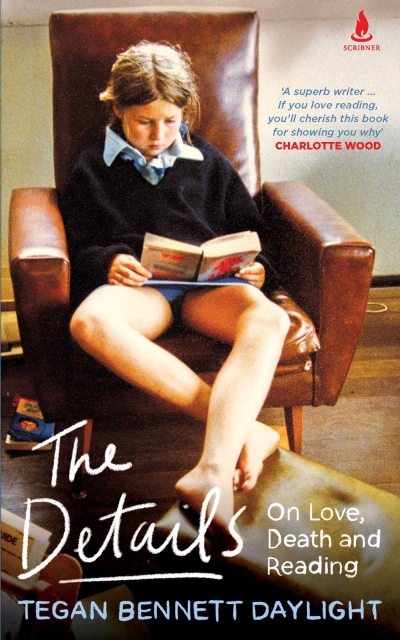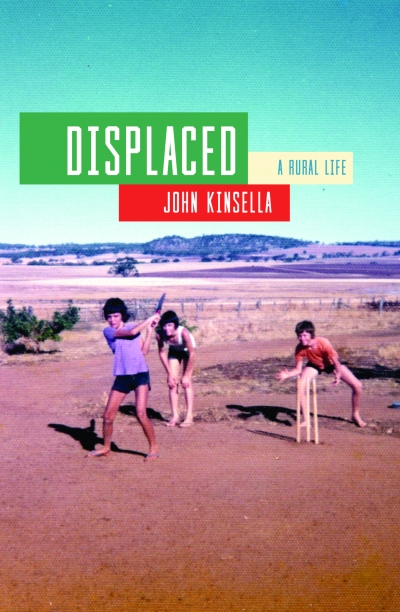Memoir
Out of Copley Street: A working-class boyhood by Geoff Goodfellow
Geoff Goodfellow is best known as a poet. Out of Copley Street, his first non-verse publication, chronicles his working-class coming of age in Adelaide’s inner-northern suburbs during the 1950s and 1960s.
... (read more)Lioness: The extraordinary untold story of Sue Brierley, mother of Saroo, the boy known as Lion by Sue Brierley
The vision was of a brown-skinned child standing by her side. She sensed it so keenly that she could even feel the child’s warmth. It was so striking she wondered about her sanity … but as time went by, she became more comfortable with her vision, accepted it as something precious, a visitation of some sort that only she knew about.’
... (read more)Show Me Where It Hurts: Living with invisible illness by Kylie Maslen
Virginia Woolf wrote that when trying to communicate about pain as a sick woman ‘language at once runs dry’. How does one talk about wounds without fetishising their workings, and how in a society where pain is taboo does one speak of it authentically? In Show Me Where it Hurts, writer and journalist Kylie Maslen balances the difficulty of this equation: telling the story of her disability and having that story remain fundamentally unspeakable. The act of telling remains for Maslen ‘a rejection of language’, and yet the thing on the table for those suffering is ‘the desire to make ourselves known’.
... (read more)The Other Side of Absence: Discovering my father’s secrets by Betty O’Neill
The realisation that our parents are not exactly who we understood them to be can be a profound rite of passage. For some it comes with no forewarning: a random event leads to an accidental disclosure, or substantiates an old rumour. For others this realisation takes shape in a less acute though no less transformative manner. With The Other Side of Absence: Discovering my father’s secrets, Betty O’Neill pieces together her family history in an effort to learn more about her father, a stranger she briefly encountered when she was nineteen. What began as an innocuous exercise at a writers’ retreat would evolve into a three-year research project through which the author uncovers the riveting story of Antoni Jagielski – resistance fighter, Holocaust survivor, unsettled postwar migrant, and absent father.
... (read more)To his obvious surprise, John Wood became a household name playing ordinary, reliable Aussie blokes – most memorably Sergeant Tom Croydon on Blue Heelers and magistrate Michael Rafferty on Rafferty’s Rules – two of television’s best-loved everyday heroes. (I confess to writing about the latter in The Bulletin and describing him as ‘the thinking woman’s crumpet’.)
... (read more)Chasing the Light: How I fought my way into Hollywood: From the 1960s to Platoon by Oliver Stone
Reviewing Oliver Stone’s film Salvador for The New Yorker in 1986, Pauline Kael detected a ‘right-wing macho fantasy joined to a left-wing polemic’. That same compound, a politically unstable one, bubbles under the surface of Stone’s autobiography, Chasing the Light. Generally speaking, it is hard to separate judgement about an autobiography from that about its subject, since reading an autobiography is like a long stay at someone’s home, listening to them detail their life story around the dinner table, night after night. The problem is twofold when its author is so politically conflicted. As distinct from a film review, to review Oliver Stone’s autobiography is undeniably to review ‘Oliver Stone’.
... (read more)The Time of Our Lives: Growing older well by Robert Dessaix
In the garden of a hotel twenty minutes from Yogyakarta, a group of hopeful, middle-aged Westerners gyrate anxiously to the strains of LaBelle’s greatest hit. Unlike their young Balinese instructor, they are fighting a losing battle. Why bother? Robert Dessaix wonders. Next morning, his travelling companion answers in her husky smoker’s growl, ‘It’s death they’re afraid of – or at least dying.’
... (read more)Eddie Jaku looks out benevolently from his memoir’s cover, signs of living etched across his face. The dapper centenarian displays another mark, one distinctly at odds with his beatific expression and the title’s claim: the tattoo on his forearm from Auschwitz II-Birkenau. Less discernible is the badge affixed to his lapel bearing the Hebrew word zachor; ‘remember’. The Happiest Man on Earth blazes with the pursuit of memory, of bearing witness, but it is also determinedly oriented towards the future, its dedication inscribed to ‘future generations’.
... (read more)The Details: On love, death and reading by Tegan Bennett Daylight
When William Blake wrote of seeing ‘a World in a Grain of Sand’, he meant the details: their ability to evoke entire universes. So did Aldous Huxley when, experimenting with mescaline, he discovered ‘the miracle … of naked existence’ in a vase of flowers. More recently, Jenny Odell’s bestseller How To Do Nothing: Resisting the attention economy (2019) made a case for rejecting productivity in favour of active attention to the world around us.
... (read more)John Kinsella tends to be a polarising figure, but his work has won many admirers both in Australia and across the world, and I find myself among these. The main knocks on Kinsella are that he writes too much, that what he does write is sprawling and ungainly, and that he tends to editorialise and evangelise. One might concede all of these criticisms, but then still be faced with what by any estimation is a remarkable body of work, one that is dazzling both in its extent and its amplitude, in the boldness of its conceptions and in the lyrical complexity of its moments. An element that tends to be overlooked in Kinsella, both as a writer and as a public figure, is his compassion. What it means to be compassionate, rather than simply passionate, is a question that underpins Kinsella’s memoir Displaced: A rural life.
... (read more)



